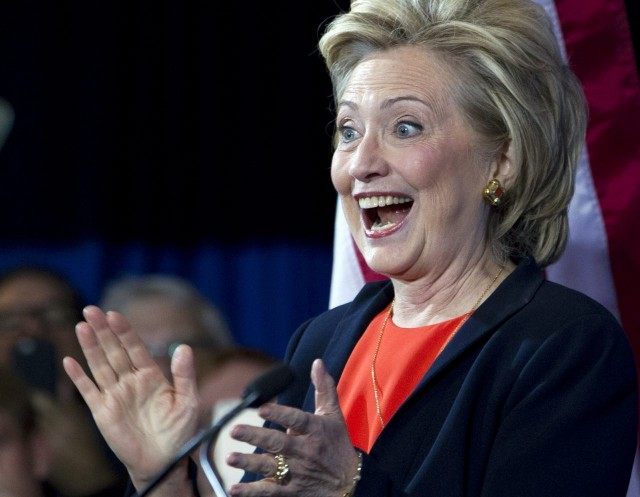The California Supreme Court heard arguments Tuesday about whether the Democrat-dominated state legislature can put a referendum on the 2016 ballot about the Citizens United ruling.
The case, decided narrowly by the U.S. Supreme Court in 2010, allowed both corporations and unions to spend unlimited amounts of money on elections, independent of campaigns or candidates themselves. Democrats have used the case as a bogeyman ever since.
In his 2010 State of the Union address, President Barack Obama attacked the Supreme Court publicly for its ruling, declaring: that the “Supreme Court reversed a century of law that I believe will open the floodgates for special interests–including foreign corporations–to spend without limit in our elections.” Several members of the Court sat mute as Democrats leapt to their feet in applause; Justice Samuel Alito silently mouthed the words: “Not true.”
Democratic presidential contender Hillary Clinton has made the Citizens United ruling a prime target–which is perhaps no surprise, given that the original case was about an attempt by the Federal Election Commission to ban a movie that was critical of her in the run-up to the 2008 election.
Mrs. Clinton is openly proposing amending the First Amendment to the U.S. Constitution to restrict free speech in ways that would overturn Citizens United.
The ballot initiative proposed by the California legislature would be advisory in nature only. Its main effect, critics say, would be to increase Democratic Party voter turnout, given that Clinton and other Democrats have made the case central to their campaigns. That was the argument made by the Howard Jarvis Taxpayers’ Association in 2014, when it sued successfully to remove a Citizens United referendum from the ballot in that year’s midterm election.
On Tuesday, according to the Los Angeles Times, the judges seemed inclined to allow a Citizens United referendum, though Chief Justice Goodwin Liu–a left-wing judge who had once been nominated to the federal bench by Obama before withdrawing in 2011–worried that allowing the referendum would give the legislature the power to flood the ballot with advisory measures citizens cannot propose. He added that the Citizens United referendum was skewed.
The referendum, officially known as Proposition 49, asks citizens to show their approval for “an amendment or amendments to the United States Constitution…to allow the full regulation or limitation of campaign contributions and spending.”
The ballot measure neglects to mention the First Amendment specifically, or otherwise to indicate to voters that it is proposing fundamentally altering the freedom of speech, as interpreted by the U.S. Supreme Court.

COMMENTS
Please let us know if you're having issues with commenting.